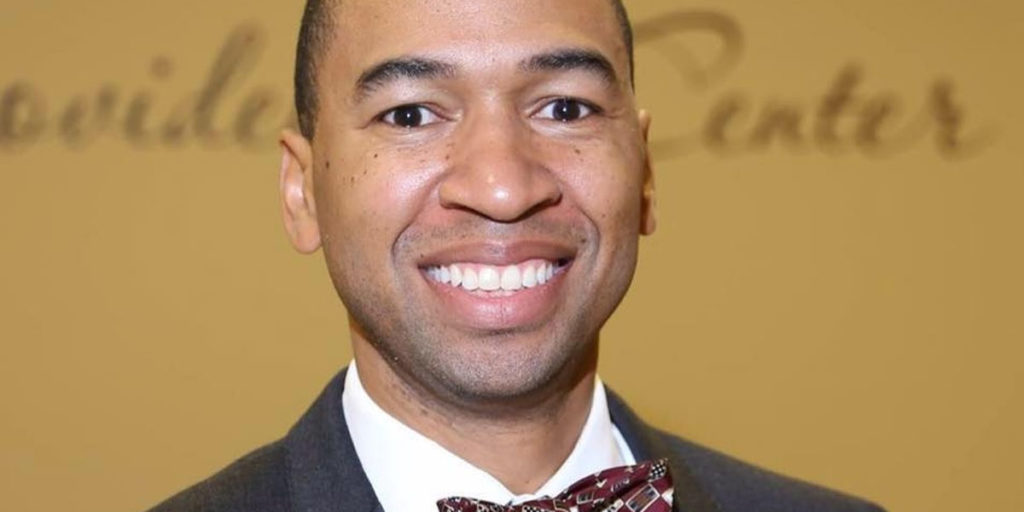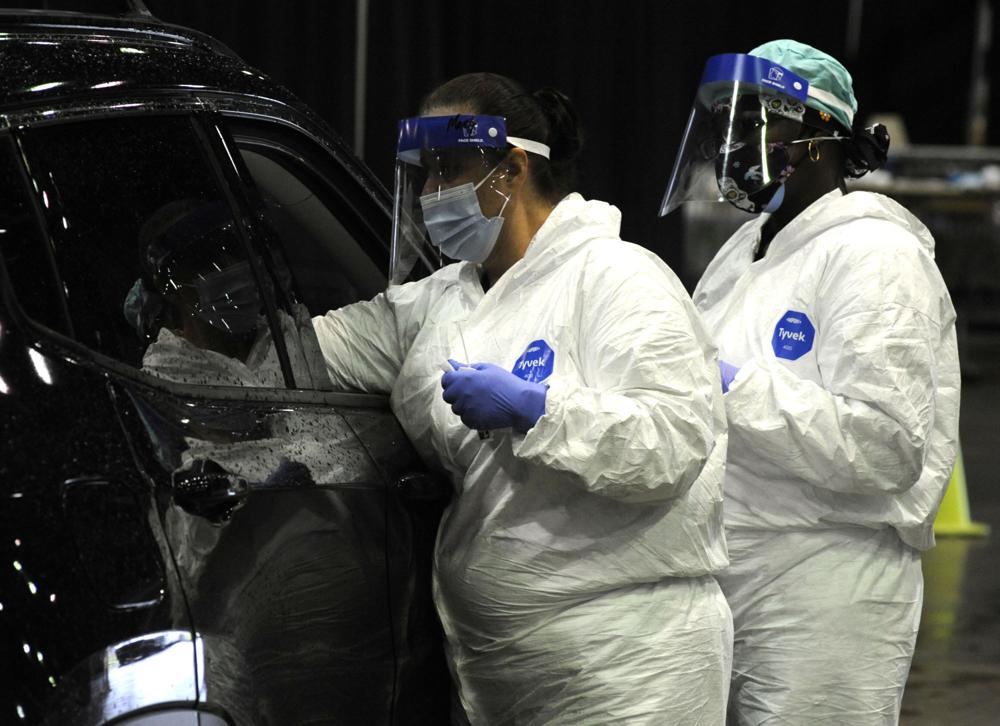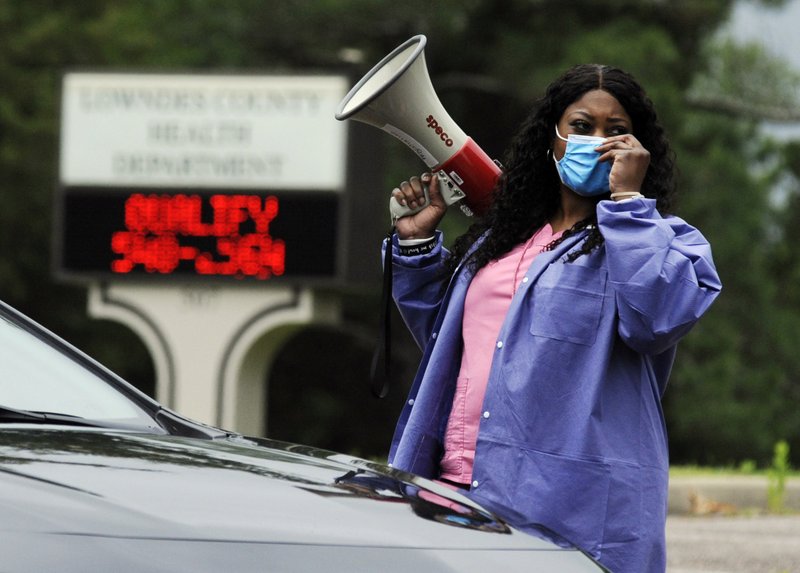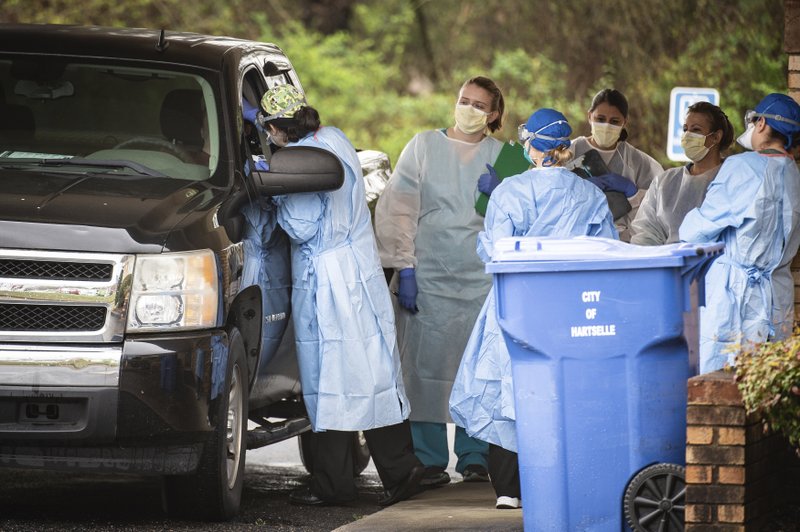Montgomery mayor Steven Reed and state superintendent Eric Mackey positive for COVID-19

Montgomery Mayor Steven Reed said he is quarantining after testing positive for the coronavirus and developing a mild case of COVID-19. Reed sent a message on social media on Sunday saying he will be fine and encouraging others to get tested, vaccinated, and boosted. He announced the diagnosis a day earlier, saying he tested positive after returning home from a business trip despite being fully vaccinated. “I’ll be in isolation for the next week while staying engaged in city matters,” Reed said. Eric Mackey, Alabama’s state school superintendent, announced on Friday that he had tested positive for COVID-19. Mackey said he was vaccinated and had received a booster shot and was experiencing “cold-like symptoms.” State statistics show more than 2,700 patients are currently hospitalized with COVID-19. That means Alabama is nearing its all-time high for pandemic hospitalizations, 3,084 in January 2021, according to the Alabama Hospital Association. More than 16,800 people have died of COVID-19 in Alabama, giving the state the nation’s fourth-highest death rate, according to researchers at Johns Hopkins University. Republished with the permission of the Associated Press.
Revisions to Alabama history teaching standards delayed

With much of the nation debating what and how to teach about history, the state of Alabama has delayed a revision to its classroom standards for teaching history for years after they were both praised and criticized by an educational think tank. Officials this fall postponed an update to the state’s social studies course of study for five to six years, citing a positive review from the Fordham Institute, an ideologically conservative educational group that has become recognized for its audits of state history and civics standards, al.com reported. A notice about the delay came in November, a month after Alabama officials voted to ban so-called critical race theory in K-12 schools, a move that has left some students and teachers worried about how to discuss race and racism in the classroom. A review published by the Fordham Institute called Alabama’s standards for teaching civics and U.S. history “exemplary,” citing an emphasis on facts and a “rigorous and thorough overview” of the nation’s past. But the organization also noted some gaps in Alabama’s history instruction, saying that coverage of the Fourteenth Amendment is insufficient and that its standard for explaining Alabama’s secession from the Union “is unbalanced.” “There is a somewhat ambiguous reference to ‘states’ rights’ in the fifth-grade standard on the causes of the Civil War, which should either be removed or more clearly subordinated to ‘the issue of slavery’ to avoid misinterpretation,” the report stated. “And the decision to lump together the many changes that have occurred in the seven decades of U.S. History ‘since World War II’ is unfortunate.” A committee met once in February to discuss revisions to Alabama’s social studies course of study, which hasn’t changed since 2010. But in September, State Superintendent Eric Mackey told members that all future meetings had been “postponed until further notice.” “As you may know, our current standards have been recognized for excellence, including the most recent recognition by the Fordham Institute as one of only five states to be ranked as exemplary in both Civics and U.S. History,” Mackey wrote in a September memo. “As important as social studies is, with a number of important topics to cover in the next few years, we believe the next steps include updating and aligning our Career and Technical Education (CTE), arts, and sciences. We remain undeterred in our commitment to high-quality social studies in all grades.” A lead researcher at the Fordham Institute didn’t agree with the delay. “A lot could happen in two decades,” said David Griffith, a senior research and policy associate who led the institute’s recent review of social studies standards. “Per the report, Alabama’s history standards for the post-1970 era are already a little thin, so it’s concerning that the problem could get worse before it gets better.” The Alabama State Department of Education does not mandate the teaching of any particular curriculum. Rather, the agency adopts standards about things students are expected to know and be able to do by certain grades. Typically, those standards are updated every five to ten years, but the recent delay spells an even longer waiting period for social studies standards, which were up for review this year. Griffith, who led the Fordham review, said the institute generally recommends states revise their standards every ten years. Many states are behind schedule, he said, but to his knowledge, Alabama is the first to cite the strength of its current standards as a reason for delaying revisions. The decision that could dock them points in future reviews, said Griffith. “We definitely penalize states that haven’t addressed important historical developments in their standards, and the post-2010 era has definitely seen its fair share of history,” he said. Republished with the permission of the Associated Press.
Kay Ivey seeks delay of 3rd grade reading promotion requirement

Gov. Kay Ivey said Wednesday that she will ask lawmakers to delay a requirement to hold back third-graders who don’t meet reading benchmarks but said the state must strengthen efforts to boost math and reading scores. The Republican governor recommended a one-year delay of the promotion policy scheduled to take effect at the end of this school year. Alabama Superintendent of Education Eric Mackey said he supports the delay because the COVID-19 pandemic disrupted the last two school years. Mackey said his department had estimated about 12% of third graders would be held back if the requirement were implemented this year. “I just feel like with the impact of the pandemic that we need to give our teachers and our students and our families a little breathing room,” Mackey said. The governor said policymakers need more data, particularly upcoming test scores, before implementing the promotion requirement. It will be up to the Alabama Legislature to change the law and implement the delay. “Because we are implementing a new assessment, we need the spring 2022 data to further validate the ‘cut score’ before we implement the promotion policy. In the meantime, we will be doubling down on providing the support needed to implement the Alabama Literacy Act,” Ivey said. In 2019, Alabama lawmakers approved several initiatives to try to boost reading scores. Beginning in the 2021-22 school year, third graders would be required to meet reading benchmarks before moving to the fourth grade. Students would have to make a minimum score on a reading assessment or demonstrate mastery of all third-grade state reading standards. Ivey made the announcement at a state Board of Education meeting, as board members voted on the minimum score for the promotion requirement. The board on Wednesday approved a cut-off reading score on the standardized test that 23% of third graders fell below on the latest assessment and would have put them in jeopardy of being held back. However, Mackey said his department predicted a lower percentage of students would have been held back because spring test scores should improve and other factors. Mississippi saw 8% of third-graders fail a similar reading test requirement after it implemented a similar reading requirement. Alabama lawmakers had already tried to delay the promotion requirement by two years, arguing it would be unfair to force the requirement on students who were out of the traditional classroom for long stretches during the pandemic. Ivey, in May, let the measure die by a pocket veto, saying it was too early to make that decision. Republican Rep. Terri Collins, the sponsor of the 2019 Literacy Act, said she agrees with the governor’s recommendation for a delay of a single year. She said lawmakers originally thought they would have three years of test scores before the promotion requirement took effect, but the pandemic disrupted that. Collins said the state should move forward with the requirement next school year. “The goal is that every child can read on level before we move them to fourth grade, where they are expected to read to learn,” Collins said. Republished with the permission of the Associated Press.
Former candidate Tim James eyes possible challenge to Kay Ivey

Former Alabama gubernatorial candidate Tim James said Wednesday that he is considering challenging fellow Republican Gov. Kay Ivey in next year’s governor’s race. James, the son of former Gov. Fob James, said he will decide by the end of the year. Taking on a well-funded incumbent is typically an uphill battle in a primary, but his entry into the race could thwart the governor’s hopes of having only minimal opposition in 2022. Staking out far-right political territory, the 59-year-old toll road developer has defended people’s decisions to decline the COVID-19 vaccine and on Wednesday called transgender acceptance, critical race theory, and yoga in gym class part of a “beast with three heads” threatening children in public schools. “I don’t have to tell you that many problems exist today in America, but they are pale compared to what this nation will look like if we lose this cultural war and America becomes a secular godless nation flowing to and fro in the wind with no plumb line, no principles,” James said. He criticized newly passed Alabama legislation that allowed students to do yoga in schools. “They took prayer out of schools and then they put in this Trojan horse called yoga,” he said, noting its ties to Hinduism. The elder James had fought legal battles a governor over school prayer. Ivey’s campaign zeroed in on his yoga comments when asked about James’ possible entry into the race. “We appreciate his unwavering commitment to the important fight on yoga. As for Governor Ivey, she doesn’t do any yoga,” Ivey’s campaign joked in a statement. Ivey this spring signed legislation reversing a decades-old ban on yoga in public schools. The legislation had a number of restrictions and forbids religious teachings with yoga and saying the greeting “namaste.” Rep. Jeremy Grey, the sponsor of the legislation, has said the exercises can boost physical and mental and the bill is written to forbid teaching religion. Alabama Superintendent of Education Eric Mackey has said critical race theory is not taught in public schools. James largely declined to comment on Ivey on Wednesday, saying that was a subject for another day. In July, he criticized Ivey’s comments saying unvaccinated people were to blame for a spike in COVID-19 case. James said Ivey’s comment was “off base.” James ran for governor in 2002 and 2010, when he narrowly missed making the GOP runoff, finishing about 200 votes behind the eventual winner, Robert Bentley, who was elected governor that year. “Look, I’ve lost. It didn’t kill me. But I think if we do it, I think I’ll win it,” James replied when asked about the difficulty of taking on an incumbent. Stacy Lee George, a correctional officer, and former Morgan County commissioner is running against Ivey. State Auditor Jim Zeigler has said he is also considering a run. Fob James turned 87 Wednesday. Tim James said his parents now live in Miami. His mother Bobbie James is in a nursing facility there, and his father lives in a nearby independent-living apartment in order to stay with her. James said his father is doing well. “He watches FOX News, just stays on top of everything. He loved Trump,” he said. Republished with the permission of the Associated Press.
Alabama sees surge in virus cases among school-age children

Alabama is seeing a sharp rise in COVID-19 cases in school-age children, an increase officials say is likely fueled by the highly contagious delta variant and is causing some schools to temporarily switch to remote learning. The Alabama Department of Public Health said Thursday that 5,571 children ages 5 to 17 were reported to have contracted COVID-19 last week. That compares to 702 cases in school-aged children during the same week last year, when more than half of students were studying remotely and the delta variant was not circulating. State Health Officer Scott Harris pointed to the more contagious delta variant as “the most likely explanation.” “The numbers are staggering,” Harris said of the increase. “We want to remind people that everyone needs to be vaccinated who is eligible, that is everyone 12 and up. We strongly recommend universal masking in schools.” The numbers represent a seven-fold increase in cases over that timeframe last year, although hospitalizations and deaths in children remain relatively rare, according to state numbers. Of the nearly 2,900 patients in state hospitals with COVID-19 on Thursday, fewer than 50 were children, according to the Alabama Hospital Association. State health officials have said about 6% of infected children develop the lingering symptoms known as “long COVID.” Harris said a state dashboard that lists school cases should resume reporting Friday. Alabama Superintendent Eric Mackey said the number of schools implementing temporary remote learning is growing “every day and it is growing exponentially.” “The delta variant is so much more contagious. It certainly has been more contagious among youth. We are seeing that,” Mackey said. “We never anticipated there would be this kind of spike not in schools but a community-wide spike, that would hit the week we began to open school. It was the perfect storm,” Mackey said. Lee, Cullman, and Lawrence counties are among those that this week announced a temporary return to remote learning for some individual schools. Cullman County Superintendent Shane Barnette said five schools in that system will switch to remote learning for the next two weeks. The decision came after one-third of students there were absent either because they tested positive for COVID-19 or were in quarantine because of being in close contact with someone who did. “The safety and well-being of our students, faculty, and staff is the number one priority in our school district,” Barnette said. Shelby County Schools on Thursday announced the system would begin requiring masks to be worn in schools. State officials have left decisions on masks to local systems. Superintendent Lewis Brooks wrote to parents that the move, “gives us the best chance to stay in school without a complete shutdown.” Mackey urged parents to be patient. “These are challenging times for teachers and principals. We know that it is frustrating for them and for parents, but parents just need to be patient. We’ll get through this difficult spike,” Mackey said. He also urged people to talk to their medical provider about getting vaccinated to slow the spread and “not have another spike.” Republished with the permission of the Associated Press.
Schools not teaching race theory, some want to ban it anyway

Alabama might ban the so-called “critical race theory” from being taught in public K-12 schools even though education officials said no schools are actually doing so. Members of the Alabama Board of Education on Tuesday discussed the wording of a possible resolution that could be voted on later this summer. A Republican lawmaker has introduced legislation for the 2022 session to ban the teaching of critical race theory. Some GOP-controlled states have already passed such bans this year as a national debate intensifies about how race should be used as a lens in classrooms to examine the country’s tumultuous history. Critical race theory is a way of thinking about America’s history through the lens of racism, but it is not typically taught in public schools. State Superintendent Eric Mackey said state school board members want to deal with the issue but said critical race theory is “certainly not” taught in schools now. “Critical race theory as it exists is a graduate-level concept. But it is not taught anywhere in any of our courses of study,” Mackey told board members Tuesday. One draft of the state school board resolution would say that the board believes the U.S. is not inherently racist country, and the state of Alabama is not “inherently racist.” “I can’t with a clear conscience say that that’s actually true,” board member Tonya Chestnut said Tuesday. “Theoretically I would like to say that Alabama is not a racist state but I’ve experienced it,” said Chestnut, who is Black. Board member Stephanie Bell expressed concern that the resolution did not go far enough. “We need to deal with it in a way that actually does something instead of taking a stand so that it looks like we’ve done something,” Bell said. Mackey said they will continue to work on the wording and may vote as soon as next month. The superintendent said they don’t want to infringe on teachers’ ability to talk to students about important, and even controversial, issues provided they don’t “push children to one side or the other.” The American Civil Liberties Union of Alabama last week sent school board members a letter in opposition to the resolution. “Instead of preserving intellectual freedom, this resolution is a blatant attempt to suppress and censor speech,” wrote JaTaune Bosby, executive director of the ACLU of Alabama. “While states generally have latitude to determine school curricula, this effort to ban conversations about race would effectively gag educators and students, preventing both from teaching and learning effectively.” Gov. Kay Ivey, who serves as president of the board, said, “Our goal is to have all of our students treated based on their individual ability, not on being part of a certain group, sex race, or anything else,” Ivey said. Republished with the permission of the Associated Press.
50 Department of Education employees quarantined after COVID-19 outbreak

Alabama State Superintendent of Education Eric Mackey announced Thursday that 50 Department of Education employees had been placed on quarantine after a coronavirus outbreak in the DOE building. According to AL.com, most employees are from one section of the building, so the entire section was quarantined and will be working from home. One worker from another section tested positive, so that group was sent home as well. Most employees who tested positive didn’t have any symptoms. The first section of employees will be coming back into the office in the next few days. After they return, there will be fewer than 10 employees left in quarantine. However, this outbreak is definitely indicative of a spike in cases, even with steps in place to prevent the spread of the virus. Employees have been asked to stay in their sections and not walk around too much in other areas of the building to prevent the virus’s spread. “To put it in perspective, between March 13 and 11 days ago, we had 12 total cases of the virus among employees here,” Mackey commented. “So we did pretty good for seven months. And in those 11 days, we’ve had nine or ten more cases.” During the summer, the number of employees in the building was cut in half. This option is being discussed again as a way to prevent another outbreak. Mackey did note that while most state education departments haven’t returned to buildings since March, Alabama hasn’t had a problem until November. “It can happen so fast, when you go from one to two to four to eight in a day,” Mackey said. “And that’s what happened to us a couple weeks ago.” Meanwhile, other counties are responding to outbreaks as well. Sparkman Middle School and Harvest Elementary will go to online learning. All other schools will remain open. Superintendent Allen Perkins announced Thursday that students from those schools would move to virtual learning starting Monday, November 16, with students returning to school on November 30. 68 coronavirus deaths were reported on Wednesday; however, it was announced on the BamaTracker Twitter page that the deaths didn’t all happen in a single day. “Please remember that while ADPH reported 68 deaths yesterday, they were spread out over the months prior. Many many media outlets are running with the story they all occurred yesterday. Even ADPH acknowledged this was not the case.” Please remember that while ADPH reported 68 deaths yesterday, they were spread out over the months prior. Many many media outlets are running with the story they all occurred yesterday. Even ADPH acknowledged this was not the case. — Bama Tracker: Alabama COVID-19 (@BamaTracker) November 12, 2020
State facing shortage of school workers during pandemic

Retirees often fill positions including substitute teachers, and many aren’t comfortable being in schools right now because of health concerns.
Alabama breaks its one-day coronavirus case record

The Alabama Department of Public Health reported more than 1,100 new confirmed cases in one day, the highest number since the outbreak began.
High school graduations to test virus rules in Alabama

Ceremonies are allowed because the state last week eliminated rules that limited crowds to 10 people or fewer.
Eric Mackey outlines phased plan to reopen schools

The timeline was tentative and dependent on the impact of the virus.
Alabama schools to finish year through distance learning

Kay Ivey, who had closed schools through April 5, said it became clear that schools cannot reopen yet.


